On Election Statements
I disagree with Secretary Rubio's new policy on election statements. But he's not entirely wrong.
There has been a lot of ink spilled over Secretary Rubio’s new directive on elections. Last month, he issued an official cable to diplomatic and consular posts instructing them to “avoid opining on the fairness or integrity of an electoral process, its legitimacy, or the democratic values of the country in question.”
My initial reaction mirrored mainstream media editorials (“The truth is that it is clearly a compelling U.S. interest to promote free and fair elections, with rare exceptions when silence is the best course”) and progressive podcasts (“It is a scary thought if essentially the message is to anybody who can control the voting in countries is, you know what, we’re out of the business of even identifying fraud”). On reflection, however, I think there is something about our approach to election statements that isn’t right.
“We commend the people for exercising their right to vote”
When I served as President Biden’s NSC Senior Director for African Affairs, I drafted, edited, or approved U.S. statements on 13 out of 32 African elections between 2021 and 2024. While I can’t say every statement was perfect, I did believe in the exercise and labored to balance our strategic interests with our democratic values in each official statement.
In hindsight, though, I realized I had missed the big picture. Before writing this post, I had never reviewed all our statements as a group, and I hadn’t compared them to U.S. official responses to elections in other regions. What is clear to me now is that we overloaded these statement with too many mixed messages, often in pursuit of at least six different—and often competing—objectives.
Mark the Event. At a basic level, U.S. statements acknowledge that an election is about to or has already occurred. Many have bland titles (“Presidential Elections in the Republic of Congo” or “Statement on Kenya’s Elections”). They often start by recognizing the citizens who participated in the process. For example, congratulating “the people of Niger who exercised their right to vote in the second round of their presidential election.” (Side note: a surefire sign of a critical statement is whether it starts with an ode to the commitment of the people instead of an offer of congratulations to the winner.)
Grade the Vote. U.S. statements typically issue a judgment on the quality of the elections, deploring “reports of voter intimidation and disenfranchisement of candidates, especially women” in Zimbabwe or noting “minor procedural irregularities” in The Gambia. In a few cases, U.S. officials shower praise on the results, opining that Botswana’s “free election reflect the voice of the people.”
Express U.S. Values. There is usually an affirmation of U.S. values, reiterating that “we stand with all Ethiopians working toward a peaceful, democratic, and secure future for the country” or communicating our firm belief that “holding elections is fundamental to a functioning democracy” in Madagascar. Some statements go even further, characterizing the Zambian election as a “tribute to the democratic ideals upon which the country was founded.”
Deliver Policy Recommendations. Most statements enumerate specific steps for the immediate post-election period. They range from generic (“we urge Chadian authorities to work with all stakeholders — especially political parties and civil society organizations—to address any concerns”) to highly prescriptive (“we call on the [Sierra Leonean] government to institute an independent, outside investigation of the election process”).
Affirm the Bilateral Partnership. Elections statements often end with a summation of shared priorities between our countries. In Cabo Verde, we pledged that we would deepen “our partnership in security, trade and commerce, clean energy, and education” whereas in Namibia we committed to partner “to increase accessibility in health, education, and food security.”
On the whole, these statements are muddled and meandering. Many sprawl for six to eight paragraphs, scrutinizing every step of the electoral process while straining to sound inspiring. But just as an election does not define a democracy, an election statement cannot define a relationship. It is little wonder, then, that legitimate concerns about election statements have been raised.
The African Treatment
Since Rubio’s directive about election statements is a blanket one, not directed exclusively at African elections, I wanted to start by understanding how U.S. statements differ from region to region. Candidly, what I found was both surprising and unsurprising. I reviewed official U.S. statements and social media posts (or the lack thereof) on 124 elections worldwide during the Biden Administration. By my account, U.S. statements on African elections were more comprehensive, often more paternalistic, and usually lacked presidential engagement.
The U.S. government issued more statements on African elections than anywhere else in the world. In fact, the Biden Administration was only silent on two African elections: the second round of the Central African Republic election in January 2021 and the Rwandan general election in July 2024. I don’t know the exact reasoning since I was not serving in government for either poll, but I now know that refraining from comment is much more common in other regions. In Europe, for example, the Biden Administration issued statements on only a handful of elections.
U.S. statements on African elections tend to be more paternalistic, lecturing African governments on what we “expect” and what their people “deserve.” The statements usually are longer than in other regions, including detailed critiques about the process and extensive discussions of democratic principles. Only Latin America can claim more critical statements than Africa. The White House in 2021 condemned the vote in Nicaragua as “a pantomime election that was neither free nor fair, and most certainly not democratic” and Secretary Blinken tweeted that “the Venezuelan people and world know that Nicolas Maduro clearly lost the 2024 presidential election and has no right to claim the presidency today.”
White House engagement on African elections was also relatively scant. While there were statements on Liberia, Senegal, and South Africa’s elections, President Biden only personally congratulated South African President Cyril Ramaphosa. By contrast, there were White House statements on elections in Brazil, Fiji, Greece, Japan, Lebanon, Mexico, Moldova, Nicaragua, and Uruguay, among others, as well as congratulatory calls to Biden’s counterparts in Argentina, Australia, Brazil, Canada, Chile, France, India, Israel, Mexico, Philippines, Peru, South Korea, Spain, Turkey, and the UK.
Say It When You Mean It
If election statements are often clunky and confused, is there a better way? First, we need to accept this shouldn’t be a one-size-fits-all approach. There shouldn’t be a template that we follow after every single vote. There are 54 African countries, and our interests and policies vary widely from one country to another. The same principle should apply to election statements.
Let me be clear: I am not opposed to stern words or punitive action by the United States consistent with our values. Learning from other regions, however, we may decide to say less or even abstain from comment in certain cases because our other interests demand it. What is important, in my opinion, is having a theory of the case. Before issuing a statement, we should understand why we are publicly commenting and how it will advance specific objectives. For instance, in our statement on Angola’s elections, we congratulated President Lourenco and focused on the strategic partnership between our two countries. It foreshadowed our investments in the Lobito Corridor and the first-ever trip to Angola by a U.S. president in December 2024.
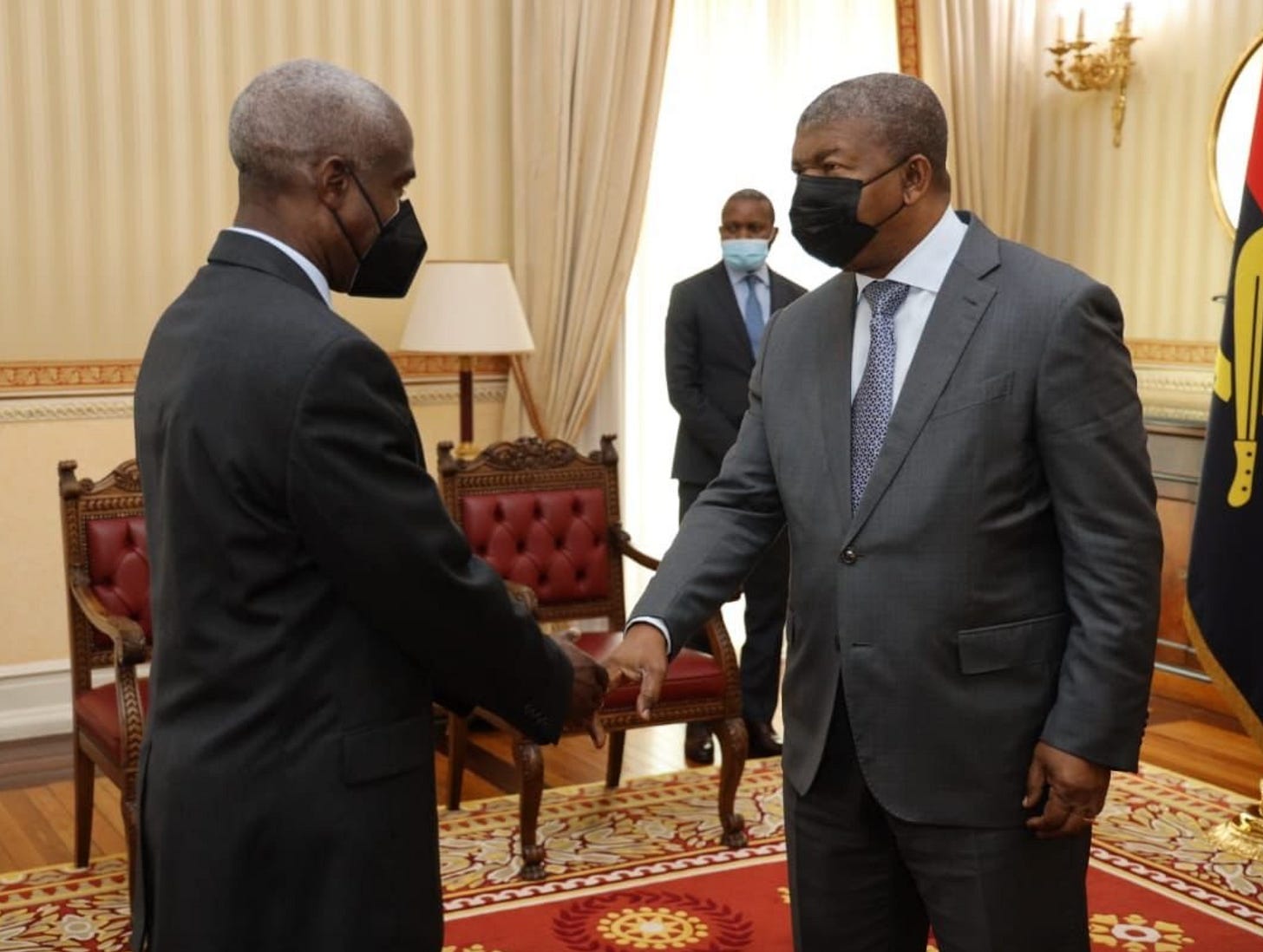
Sustain It Throughout the Election
Second, I would advocate for shorter statements that are strategically timed throughout the entire election cycle. It may not solve for criticism of U.S. finger-wagging or allegations of interference in a country’s domestic affairs, but it is more targeted and effective — honing in on specific challenges and opportunities.
U.S. statements should seek to inform foreign and domestic debate about the election process, not play the role of judge and jury. For example, we issued multiple statements ahead of Liberia’s vote to signal our engagement and commented on gubernatorial elections early in the election cycle in Nigeria. This approach more closely resembles how we have responded to democratic transitions. We weigh in throughout the transition process, offering encouragement and censure at critical junctions. We did this to great effect in Nigeria, Cote d’Ivoire, Burundi, Mauritania, Guinea Burkina Faso, Central African Republic, and The Gambia, among other examples, in the 1990s, 2000s, and 2010s.
This approach, however, is only effective if there is continuous engagement on an election — not an afterthought on the eve of the vote. In most cases, of course, the U.S. Embassy is paying attention, but Washington’s focus tends to be episodic and fleeting. There is simply not enough planning and monitoring to make full use of the resources available. It requires persistent attention to seize opportunities to arrange timely interventions, as well as try more creative U.S outreach. In 2023, for example, we released a video featuring Secretary Blinken, U.S. Ambassador Thomas-Greenfield, and USAID Administrator Power on the importance of the Nigerian elections; as of mid-August 2025, it has been viewed over 2 million times across social media platforms and accounts.
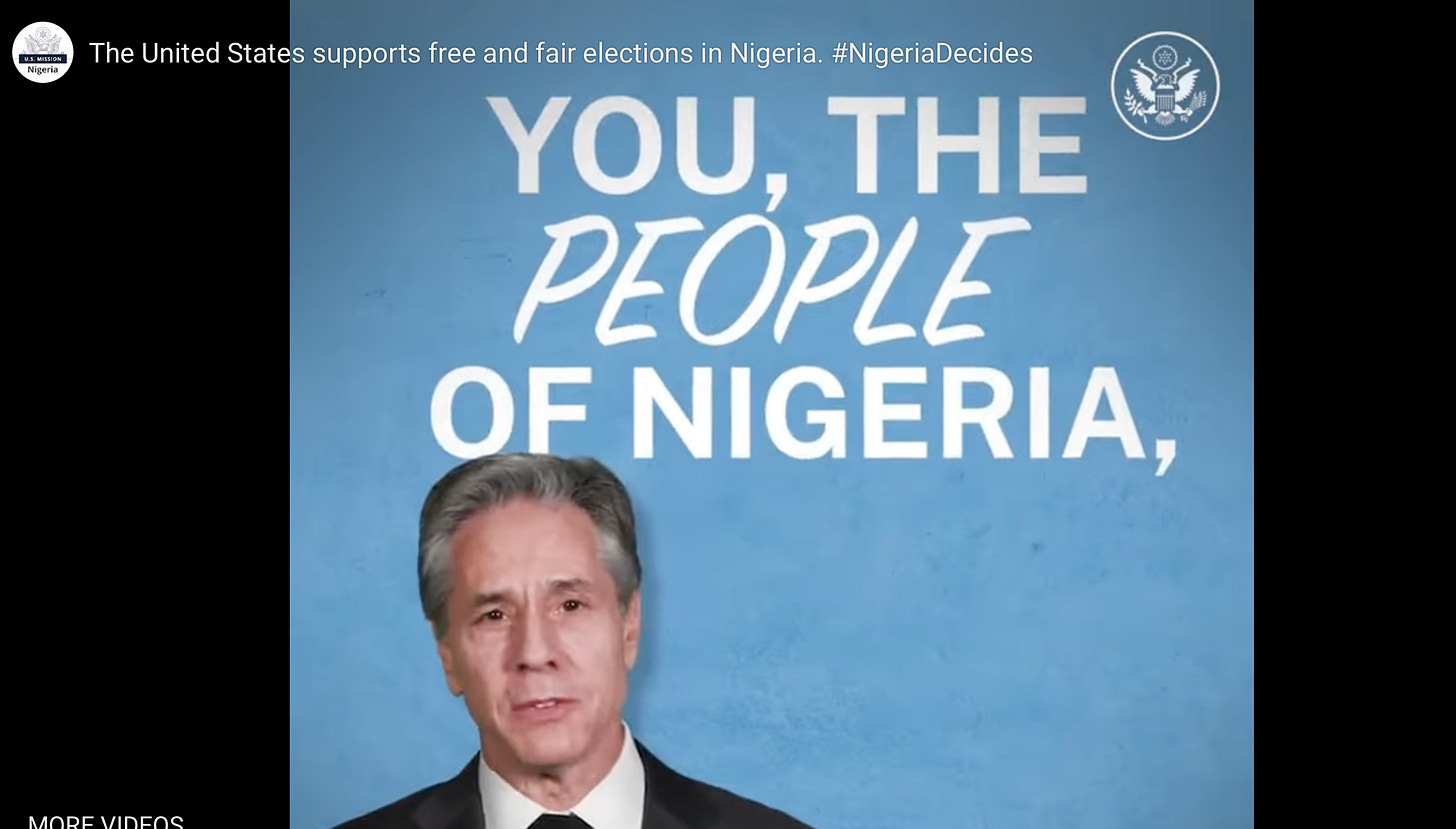
Speak It Clearly and Carefully
Third, we should communicate the stakes involved in the vote, choosing our words carefully. There’s merit in privileging concision and precision. And we should understand how our statements may be received on the ground and be prepared to follow through. For instance, the Obama Administration’s vague threat in 2013 that “choices have consequences” ahead of the Kenyan election was widely resented by Kenyan voters. We have had more success with targeted visa bans on individuals who undermined the democratic process, a punitive measure we warned about and then implemented in the aftermath of the 2019 and 2023 Nigerian elections, earning plaudits from the public.
Moreover, we need to quit slamming flawed elections just for the sake of slamming elections. During the Biden Administration, we saved our harshest remarks for Equatorial Guinea’s presidential vote. We pointed to “credible allegations of significant election-related irregularities, including documented instances of fraud, intimidation, and coercion,” but we were not prepared to take action.
And there’s the dilemma: if you say an election is not credible, you are implying that the government is not legitimate. That leaves you with only extreme options: like recognizing the opposition candidate as the winner as the United States has done in Venezuela. It traps you in a no-win policy situation immediately — and you have to quickly find a way out. Within days of our statement on Equatorial Guinea, I had to call the Foreign Minister to convey my congratulations to President Obiang and encourage him to still attend the U.S.-Africa Leaders Summit in December 2022.
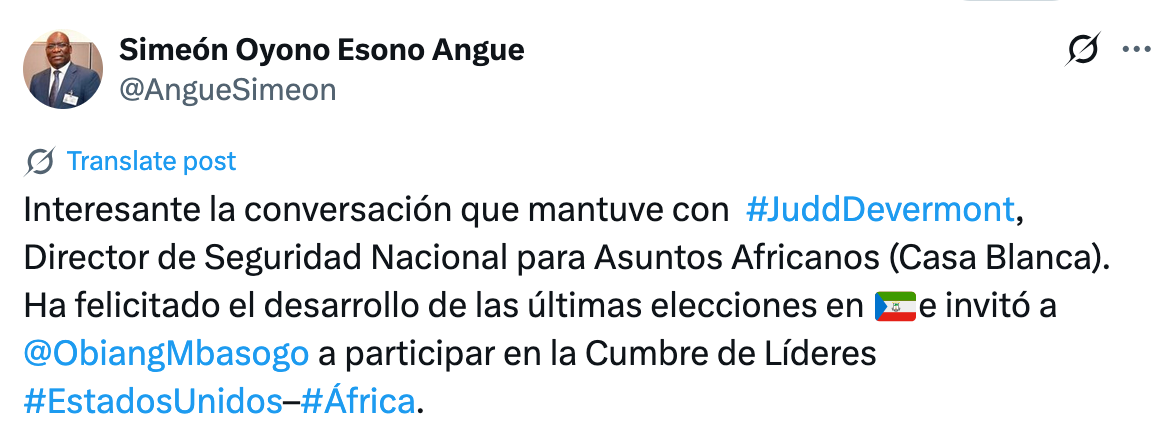
Show It With Action
Fourth, when we issue a statement, we should preview what we intend to do next. If we plan to impose sanctions or consult with partners, we should say it. Following the flawed elections in Zimbabwe in 2002, we announced that we would “consult closely with other governments to develop appropriate responses to this major setback to democracy.” And, if the election process is credible or even partially free and fair, we should commit to a series of steps—increase funding for electoral commissions, establish binational commissions, or send a high-level delegation for consultations. An election statement shouldn’t be the end of the conversation, but rather the beginning of a new chapter of engagement.
Of course, there are other ways to convey official reactions to foreign elections. In 2021, when I was still at the Center for Strategic and International Studies, I published a piece with Idayat Hassan that argued that the United States should decline to dispatch observers to monitor polls that almost certainly will be neither free, fair, nor credible. It was our view that there are few benefits to deploying an embassy team to monitor the vote—especially when the risk of inadvertently providing a veneer of legitimacy is high. In the piece, we pointed to when U.S. Ambassador to Uganda Natalie Brown concluded it was not possible for the United States to meaningfully observe the election in 2021 because the government of Uganda denied more than 75 percent of the U.S. election observer accreditations requested.
While Ambassador Brown’s action underlined U.S. disapproval, there are other measures we can take to underscore our engagement and reinforce positive momentum. In 2015, Secretary Kerry travelled to Lagos a month before the Nigerian elections to engage with the candidates and stakeholders — a move that is usually seen as taboo because it is too close to the vote. I believe his trip and consistent U.S. engagement contributed to a landmark outcome, resulting in the first transfer of power between two political parities in Nigeria’s history. The point is we can do more than election statements. Indeed election statements often are the least we can do.
Post Strategy
I don’t agree with Secretary Rubio’s decision on election statements, but I am convinced we can more effectively engage on elections in Africa. We should borrow from U.S. experiences in other regions, and commit ourselves to be more creative and more concrete in our actions. This is critical now with upcoming elections this year in Cameroon, Central African Republic, Cote d’ivoire, Guinea, Guinea-Bissau, Malawi, Seychelles, and Tanzania. We shouldn’t always be silent, but we can’t stick with the status quo.


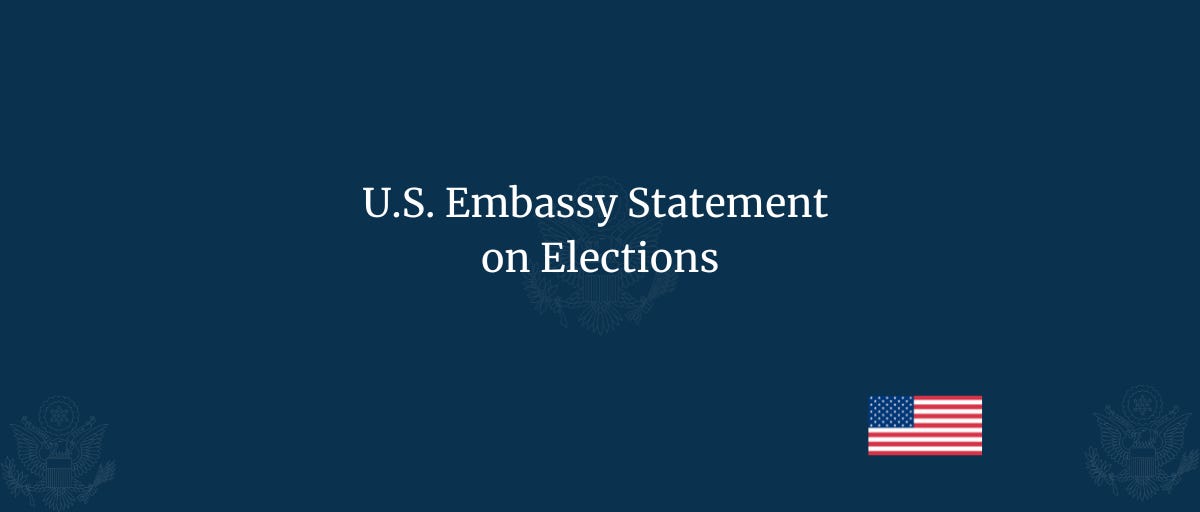
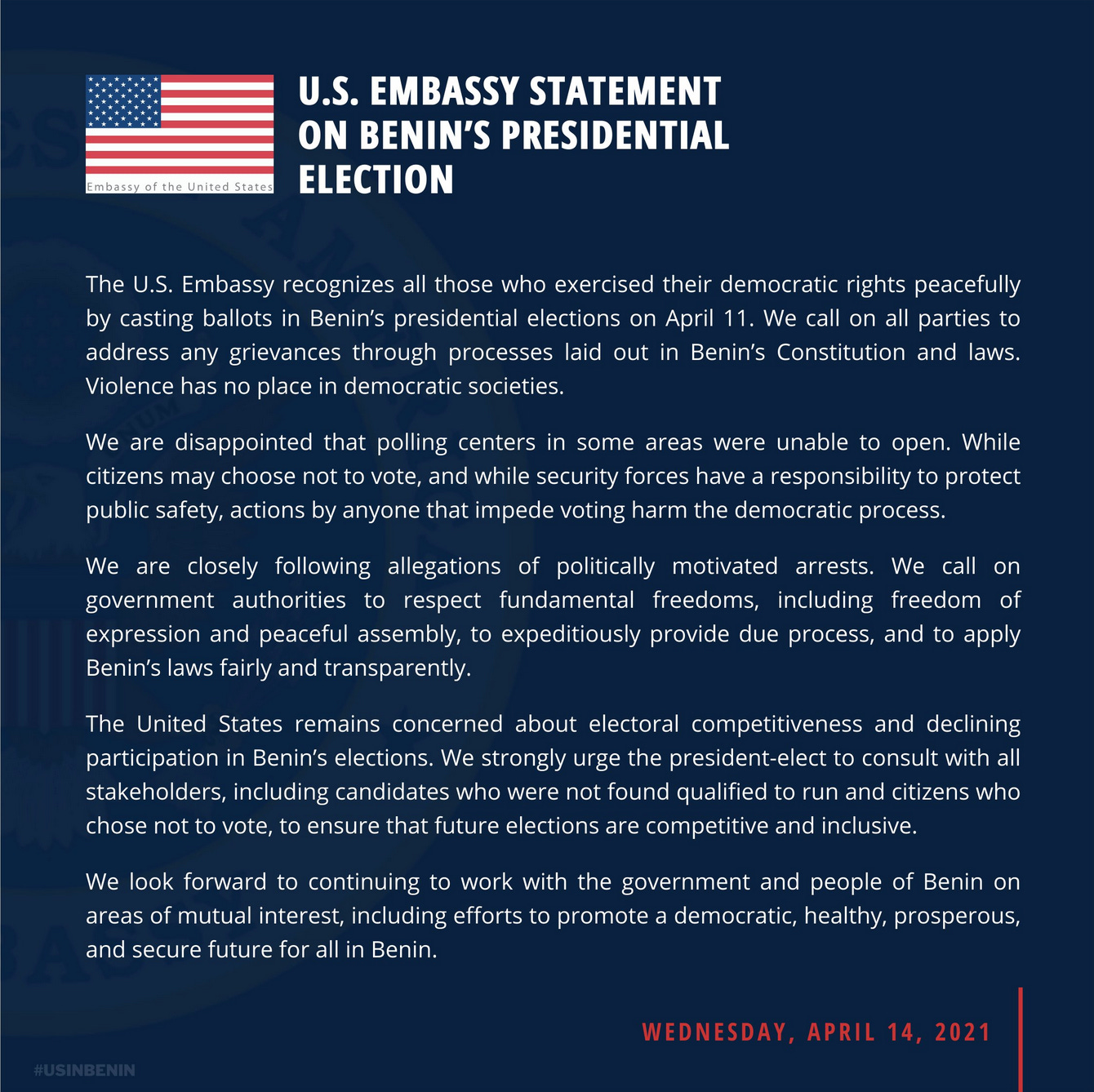
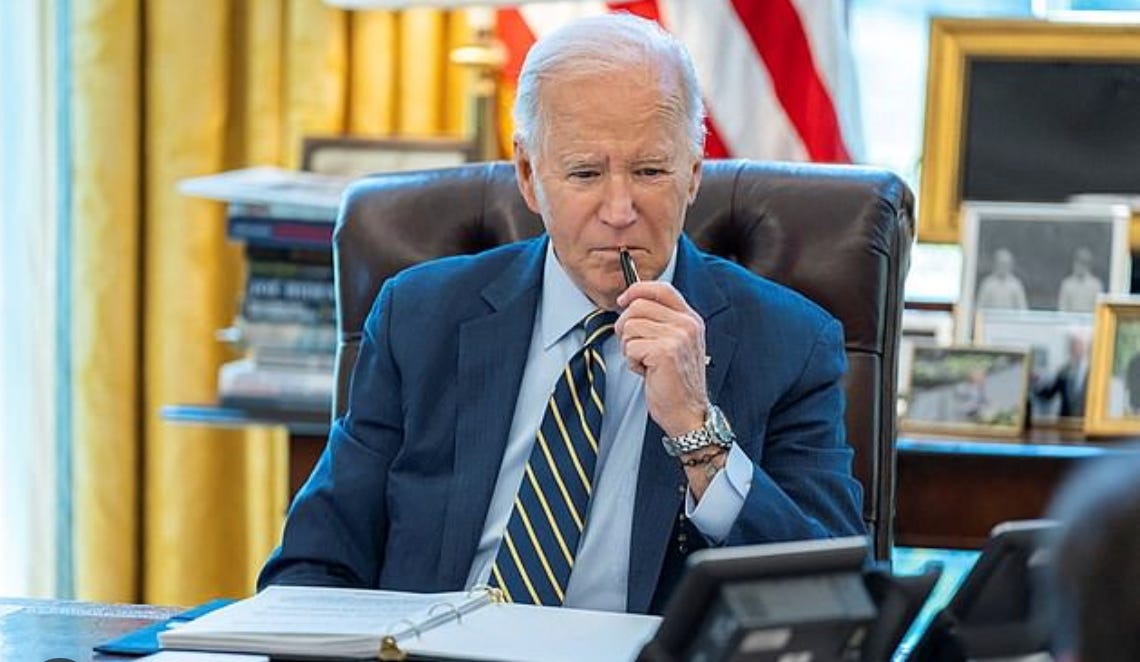
Some good ideas here, Judd. From my perspective, two of the best are "shorter statements strategically timed throughout the entire election cycle" and "when we issue a statement, we should preview what we intend to do next." The former because we leave so much leverage on the floor (to egregiously mix metaphors) when we use statements as grades after the fact rather than instruments to shape behavior in the near term; the latter because we lose even more when we grade and then drop until the next election cycle.
I found this really interesting! You visited my class in Fall 2022 and I asked you about the tension between democratic values and US interests in our relationships with African governments. It is interesting to read your reflections on these similar questions now that you are out of government. One country I brought up at the time was Niger, and you specifically took exception with it and argued it was making strong democratic progress. The 2023 coup (and public support for it) seems to indicate that many people in Niger were unsatisfied with such supposed progress (or the institutional progress was not translating to their lived realities). I’d be curious on your reflections on why the USG can sometimes miss these warning signs by focusing on the wrong metrics (eg. election credibility over public service delivery)